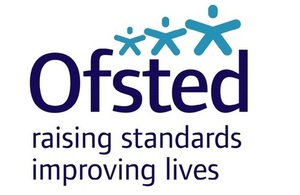School-led partnerships setting benchmark for teacher training
School-led partnerships are leading the way in improving the quality of teacher training, new figures published by Ofsted show.

Since a tough new framework for Initial Teacher Education (ITE) came into force last September, inspectors have carried out 21 inspections and have judged 5 providers to be outstanding for the overall effectiveness of training and outcomes for trainees.
Every one of the providers to have received the highest grade is a small employment-based partnership with schools centrally involved. Some of these have recently achieved school-centred initial teacher training (SCITT) status from the Teaching Agency. Their training programmes are designed and delivered by groups of neighbouring schools.
None of the higher education institutions – which have traditionally provided the majority of teacher training - inspected so far has been awarded an outstanding judgement for overall effectiveness. However, one of the outstanding employment-based partnerships, the London East Consortium, is part of the University of Cumbria’s initial teacher training provision.
No provider previously judged outstanding under the old framework has retained this top grade to date.
Her Majesty’s Chief Inspector, Sir Michael Wilshaw, said:
I am determined that every trainee working to become a qualified school or FE teacher should have the opportunity to be trained by a good or outstanding provider. So it is pleasing that the early signs are that our new inspection framework for teacher training is raising expectations and raising the bar.
Those providers which have earned the highest grade since last autumn really stand out from the rest. It is significant that all the outstanding training our inspectors have found so far is being led by consortia of neighbouring schools, with trainees taught by experienced, practising teachers.
This suggests that the government is right to put greater emphasis on new teachers being trained in schools where they can best develop the practical skills they will need as teachers – rather than in higher education institutions, which have traditionally trained the majority of trainees.
Ofsted’s new ITE framework is designed to raise standards and ensure more trainees are better prepared for a career in the classroom. It has introduced clearer, more challenging criteria, with fewer and more streamlined judgements as well as a shorter notice period for inspection. It has also replaced the previous satisfactory judgement with a new judgement of ‘requires improvement’.
Inspectors now spend more time directly observing trainees’ and former trainees’ teaching to assess their teaching skills in key subjects and in managing pupil behaviour. Ofsted now also runs a successful online satisfaction questionnaire for trainees to give their views on their training provider.
The new framework sits alongside Ofsted’s planned programme of work for promoting further improvement in Initial Teacher Education, which includes running ‘requires improvement to good’ national seminars and regional good practice conferences.
The first 2 providers to be judged outstanding under the new ITE framework in the autumn term of 2012 were the King Edward’s Consortium in Birmingham and the Alban Federation in St Albans, Hertfordshire.
The King Edward’s Consortium trains secondary teachers on employment-based routes in 19 secondary schools in the Birmingham area. The lead school is King Edward VI Camp Hill School for Girls.
Inspectors found the key strengths of the partnership included:
- the consistently outstanding outcomes for trainees, including high completion rates, high rates of progression to employment, and subsequently to posts of significant responsibility
- the rigorous recruitment and selection of high calibre trainees with impressive pre-entry qualifications, at higher levels, and good prior experience in education settings, which helps them to succeed
- the strong sense of learning community and the very effective communication, across the partnership, which ensures well-targeted intervention and secures high quality outcomes for all trainees
- the very high quality placements, with a strong focus on subject knowledge development, which is effectively enhanced further through the central training
The Alban Federation provides employment-based initial teacher training for graduates. The Federation consists of a partnership of six secondary schools, which have recently become academies, located in St Albans and Harpenden. Two of these schools, Sandringham and Sir John Lawes, are teaching schools.
Inspectors found the key strengths of the partnership included:
- the consistently outstanding outcomes for trainees including their high levels of attainment, well-honed teaching skills and exceptional completion and employment rates
- the self-motivated, highly-reflective trainees who take responsibility for their own professional development
- the rigorous and innovative recruitment and selection practice that secures a strong field of well-qualified applicants
- the very high expectations and exemplary commitment, throughout a collegiate partnership, of high performing schools which deliver consistently high-quality individualised training
- the significant attention paid to developing trainees’ subject knowledge, behaviour management skills, their capacity to promote students’ literacy and their ability to match work to the needs of all students
- the extensive involvement of leaders and managers from all partner schools in shaping the vision and culture of excellence
Notes to editors
- The Office for Standards in Education, Children’s Services and Skills (Ofsted) regulates and inspects to achieve excellence in the care of children and young people, and in education and skills for learners of all ages. It regulates and inspects childcare and children’s social care, and inspects the Children and Family Court Advisory Support Service (Cafcass), schools, colleges, initial teacher training, work-based learning and skills training, adult and community learning, and education and training in prisons and other secure establishments. It assesses council children’s services, and inspects services for looked after children, safeguarding and child protection.
Media enquiries
Clive House
70 Petty France
London
SW1H 9EX
Email pressenquiries@ofsted.gov.uk
Monday to Friday, 8:30am to 6pm 0300 013 0415
Out of hours duty press officer 07919 057 359